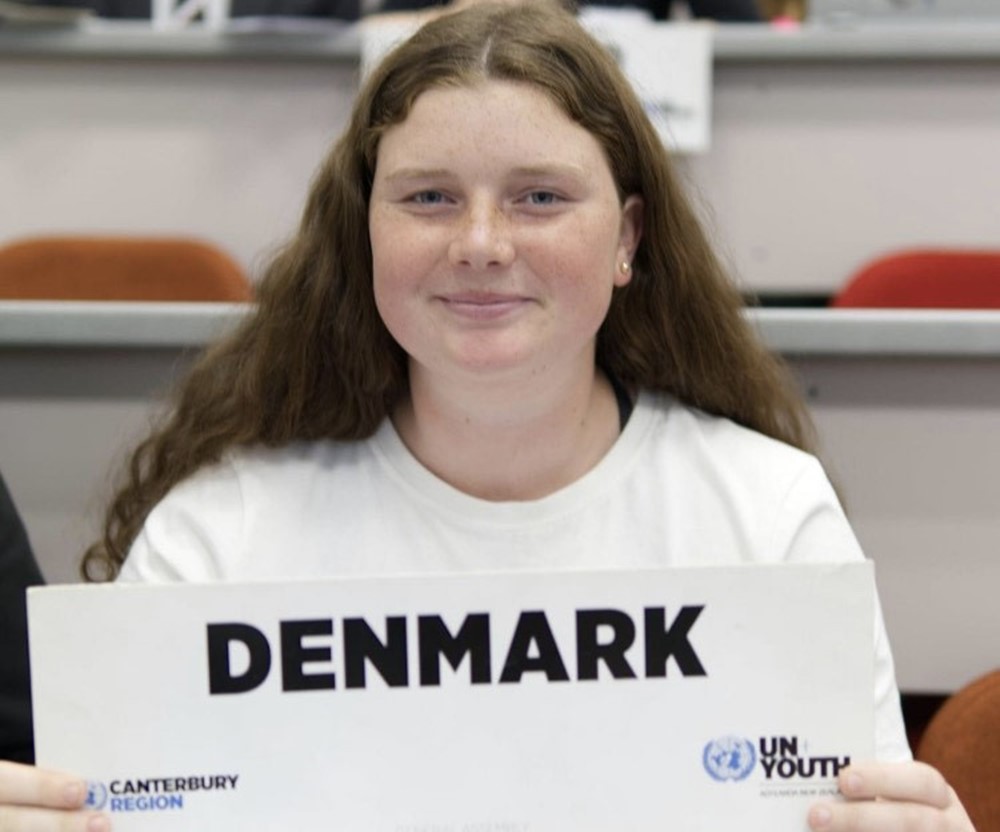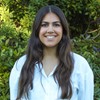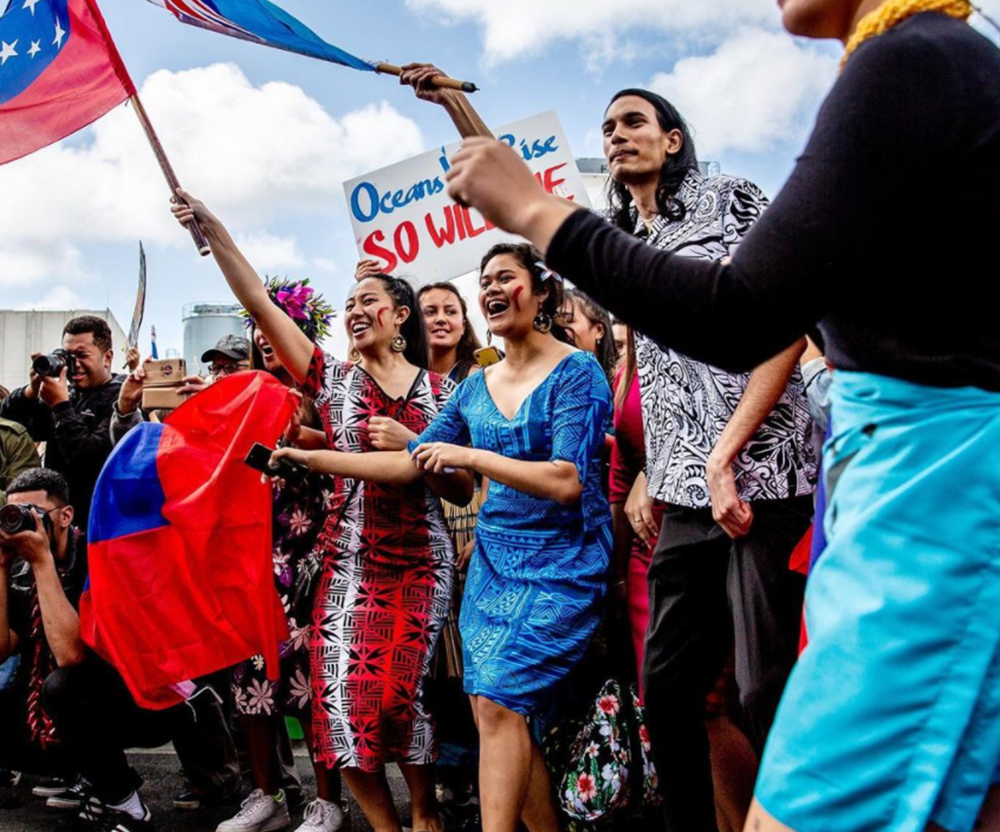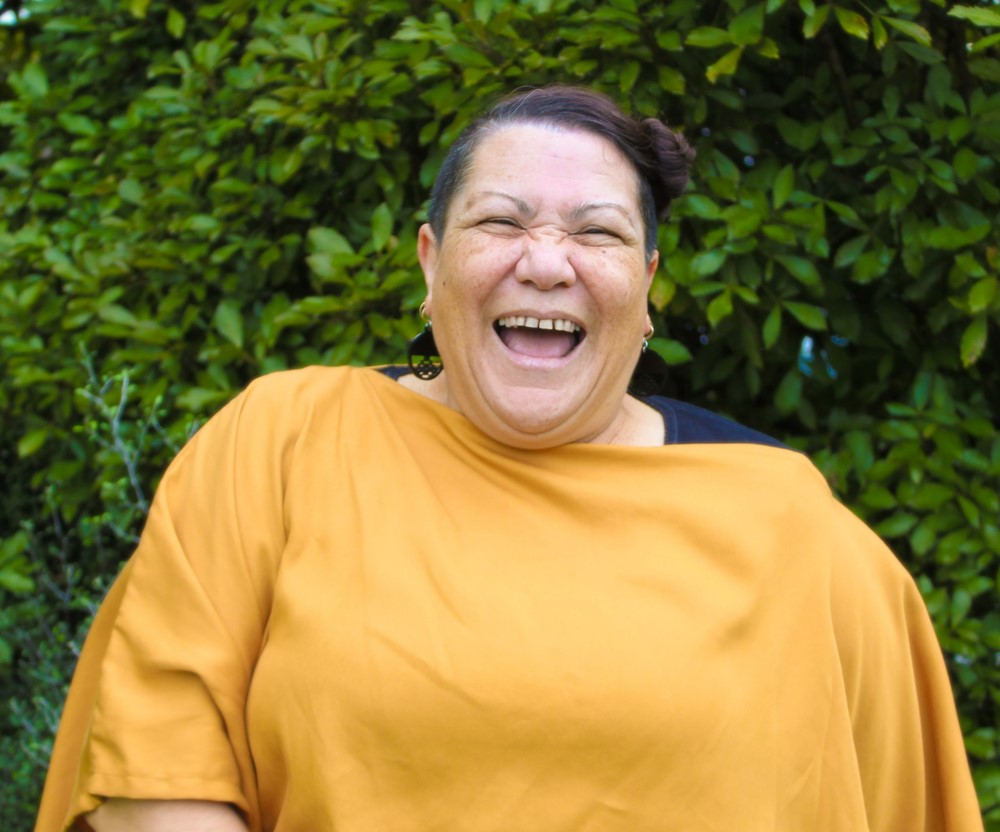
#WAHINEWEDNESDAY: Speaking up and Speaking out
Nora Quigley
Categories
Nora is the third Y25 member we are learning more about this week. She has become the youngest lead citizen scientist collecting data for the Litter Intelligence campaign and founded the South Canterbury Sustainable Youth. With over 500 hours of completed service under her belt, Nora now leads Environment Canterbury Youth meet-ups for Timaru. She's developing a sustainable, biodegradable alternative to polystyrene has remodeled community gardens, and is planting fruit trees and vegetables for families in need. She is on the student volunteer army advisory board, trying to make volunteering more accessible for young people. Nora also volunteers with Amnesty International, has developed a multicultural Aoraki Youth Council creating a safe space for kōrero on race relations within the community, and was a semi-finalist at the Race Unity Speech Awards.
Let's get to know Nora with some quickfire questions:
What are three words you would use to describe yourself?
Charismatic, outgoing, and genuine.
What is your vision of a perfect day?
My perfect day is meeting someone new, and having a really impactful, authentic, and considerate kōrero. I really love seeing why our views contrast and working the differences out in a really respectful manner. Oh… you cannot forget to get some good kai after!
Can you share something that your parents have taught you?
My parents unapologetically support me. If I said I wanted to do ballet lessons, they would be so on board with that! At the same time, they can see the importance of learning how to turn down opportunities and have helped me learn how to say no.
Being able to say no is really powerful. It shows that you have enough integrity to know yourself and respect your personal boundaries. It's hard to refuse a potentially amazing opportunity. However saying no, (when you know this could also be the decline of your mental health) is super important! It's a very fine balance between the two. My parents are so good at helping me find that equilibrium.
When my parents moved to New Zealand, they weren't running away from anything, they were moving towards something. This is something I carry with me in every big decision. They have taught me how to recognise when I have outgrown a certain conversation, a place or a person. And knowing the difference between, seeking out opportunities that serve me, and those that do not.
Generationally speaking, parents can often have different belief systems to their children, how have you dealt with this at home?
I'm really lucky that my parents are really good at supporting everything I do, despite their respective beliefs. For instance, my dad is a dairy farmer, and I am passionate about climate change- these can be quite contradictory topics. Having that dynamic at home means I have learned to see the merit of both sides of an opinion. Since becoming quite passionate about these issues, my brother is able to come and ask me questions and we can have really meaningful discussions. My younger sister, myself, and my dad all have debates during long car trips! So I wouldn't necessarily say it's changed the way our family dynamic is- but it has helped us have more conversations that are productive and helpful.
Tell me a little bit about your personal growth journey and what kick-started you into activism?
I grew up knowing I was privileged but never recognised just how privileged I truly was. When I attended a World Vision Youth conference in Christchurch. (I highly recommend going to them) my bubble burst properly, I was exposed to what injustice really looked like for so many. Four days after the conference, COVID hit and we went into lockdown. Naturally, I had a lot of time on my hands and I started thinking and reflecting and I felt really guilty.
I soon realised there is no point sitting around feeling the way I did and doing absolutely nothing about it. Using this emotion, I sent a few emails, had a few zoom calls, and organised some groups. Fast-forward to the present day, now we (The South Canterbury Sustainable Youth) organise beach audits every three months and are able to recognise the issues that face Caroline bay. So it was at this point when I started to see how climate change is such a huge thing. It can be very overwhelming at times, I think this is why some people choose to neglect the conversation entirely because of fear and a lack of education. So I choose to tackle it by making those small lifestyle changes that can accumulate to big change, rather than big change but neglecting to change our lifestyles or everyday decisions.
I also had the opportunity to participate in the Race Unity Speech Awards. But… I have a massive fear of public speaking. Coming from Ireland I do talk a bit differently and slightly faster than the average person. I have always felt somewhat nervous over others thinking ‘oh, she's a bit different.' But then I reminded myself that surely at the race unity speech awards difference is embraced and celebrated. So I did it! However, it was actually at the hui afterward that I met some really cool people. This taught me that it’s not the achievement itself but the experience that is valuable. That was the drive and was what made me decide that kōrero, alongside advocation and action were what was gonna accumulate to big change. So I wanted to create a space where all rangatahi could be heard and so the multicultural Aoraki Youth Council was formed.
What is the Aoraki Youth Council and how does it help your community?
All youth who are minorities within our district can come together and can feel represented and acknowledged within our community. They can talk about what racism is and unpack how it exists in our schools, workplaces, homes and the stereotypes faced. My story is a bit different as I am Irish. When I came over as an immigrant, I never faced racism because of the way I look. Whereas a lot of the people in the group have experienced racism, even though they may have been in Aotearoa for generations.
On a wider level, the work we do is trying to figure out how we teach the community what it is to be kind. Making a conscious effort to ensure we bring along the entire community with us. A lot of people cast blame onto the older generations for having racist, homophobic, and somewhat oppressive beliefs. But the fact is, this generation raised us. These morals still subconsciously flow through. We need to include both generations in this conversation. It's not good enough that we can let them sit with these belief systems when we are already doing such good education work with youth. We need an intergenerational understanding of these issues.
We plan to work alongside matauranga Māori advisors and local government representatives. Although we will continue to stay separate from local government, we hope to create policies that can influence local government and their decisions. We also have leaders within the group that go back into schools and create change at that level. Our people that are on board are so passionate and that's what keeps us moving forward.
As such an educated young person, what challenges has this brought you?
Being passionate about change is so much more fulfilling than the things that I was doing eighteen months ago. At the same time, I have found, being a bit younger and being interested in these things can get a bit lonely. However, I am so lucky to have friends who are passionate about climate change and race relations all around Aotearoa, who continue to support my ideas.
When I was starting, Some people doubted me and my ability to form opinions because of my age. People said that I formed opinions and beliefs off of social media and the activism you see online, rather than my critical thinking and unpacking my own experiences.
Through this, I have learned to be more direct with people, but not assertive. Because of my age, a lot of people tend to conflate me being assertive with being overbearing or bossy. So I think in that regard it is a good and healthy thing to be able to confidently articulate my opinions and why I choose to think this way. This experience has made me more confident in my ideas and values and why they are the way they are.
In the future, if we don’t change our ways and the temperature has risen four degrees, I know that I tried. I know that I wasn't a bystander to racism. I did everything I could to help, and nothing short of that.
Taking these opportunities to educate myself makes me a better person in the future.
How do you have hard conversations with people that might have differing opinions to yourself?
I believe that everyone's opinions need to have respect to ensure their opinions are valued and recognised. I have this personal rule of mine that anyone is allowed to have an opinion as long as it does not silence the voice of another and their opinion. So I love having authentic, but kind conversations to unpack our differing opinions. 18 months ago, before this journey started, I didn't necessarily have those conversations that I needed to as much because I wasn't as self-aware. My growth has brought many amazing opportunities into my life, and I find myself more and more compelled to have kōrero with others.
Something I see a lot of is a lack of respect when the conversation turns political. Often when the conversation turns this turn it is so easy for people to start condoning the individual figureheads. When in reality there needs to be recognition that there is a whole team behind them and the wider legal frameworks that influence their decisions.
I have people all around me that share the same views as me, but also many that don't. I don't want anyone to feel like they have to change who they are around me, but I do hope they continue to grow and educate themselves.
With activism being so present on social media, what challenges does this bring?
Social media is an incredible tool, but it can also lead to a huge deal of inauthenticity from young people when they feel the need to share their support for issues online. There is a big notion that if you are not posting things on social media you are not advocating for change. Just because you are not posting things five times a day, doesn't mean you are not having hard conversations with family and friends or planting trees to offset your carbon emissions. To advocate for something isn't to just use social media. There are so many different ways to advocate and to stand up for what you believe in. We shouldn't judge other people for using different tools and sources of advocacy. We also need to stop valuing some forms of advocacy higher than others. At the same time, performance activism is still activism. Even if it's advocacy from a place that isn't 100% authentic- it is still showing there is some belief there. And that is so much better than nothing.
It's a matter of holding yourself accountable and holding others accountable. It is really important to differentiate the line between what is performance and what is true advocating. Even I can get caught up in it. I sometimes look at other people's Instagram stories and think, ‘I should post that.’ But then I realise, take two steps back and ask myself, is this really what I think? Is this what I believe? Am I doing this because everyone else is doing this? Or because it aligns with my views?
A lot of conversations that are held online would not normally happen in person. So If you are advocating for things on social media, make sure you are keeping safe. As well as ensuring that what you repost online you are happy to have a conversation about in person. Hold your peers accountable. If they were saying something on social media, and are not acting accordingly in real life then let them know. Accountability is often hard, but so necessary.
Tell me about the Environment Canterbury Youth Army for Timaru and what its plans are?
The results from our beach audits and beach surveys were a wake-up call to the overwhelming amounts of plastic and polystyrene littering our oceans and beaches. Helping me further navigate the ways we can make positive change. As a result, I am currently creating a biodegradable alternative to polystyrene out of mycelium.
What advice would you give to your younger self?
I would tell little Nora don't try to hang out with the cool kids. Never underestimate your ability or the ability of those around you based on things society has marginalised. Start to recognise your privilege earlier. You're gonna make some pretty cool friends- but learn to be your own cheerleader. Don't be afraid to outgrow a space. Know and own your potential. And use that potential. Be kind to your family and yourself. One day you will end up watching more Harry Potter movies. I’m still slightly petrified but one day I will watch the deathly hallows movies, I will get there.




